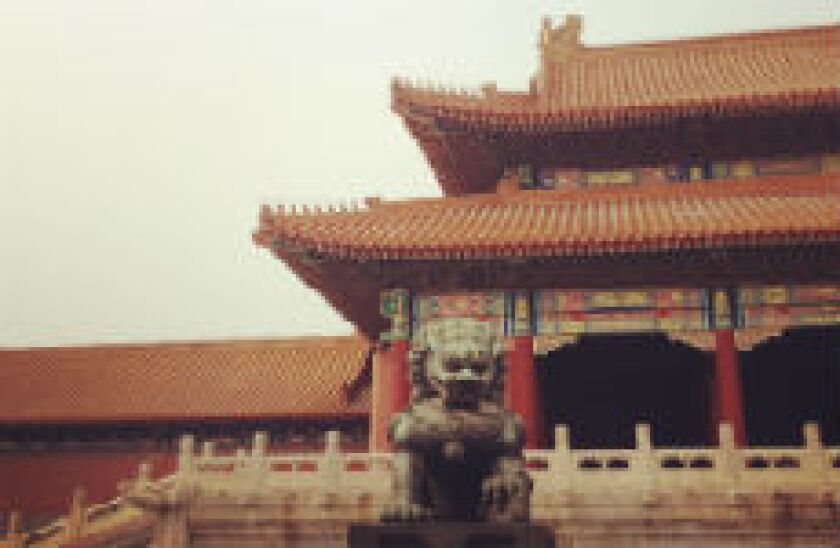China stuck to its policy refrains despite the intensifying trade war with the US, which imposed new tariffs this week.
Speaking at the Tianjin Summer Davos Forum on September 19, Chinese premier Li said China would not use the renminbi as a weapon in the trade war. He also stated China would continue to promote the opening up of its market. Li said he hopes there will be a number of full-license, full-ownership foreign-invested companies operating in China’s financial services sector within three years.
In addition, he confirmed that China will further open up its financial services sector, even if that means a greater trade deficit and regulatory challenge.
“This year marks the 40th anniversary of China’s reform and opening up. Compared with where we came from, the breadth and depth of China’s opening up have gone far beyond our expectations, and those of our foreign friends,” Li said.
In the same statement, the premier emphasised that the precondition for such openness is financial stability. Therefore, obtaining the relevant qualifications will be crucial for those foreign companies keen to take advantage of the opportunities in China's capital markets.
Yi Gang, the People's Bank of China governor, echoed the opening up agenda in a new book released this week.
"Sectors that are more open tend to be more competitive, and less open sectors usually lag behind and accumulate more risks, as proved by the experience from China's reform and opening up," Yi wrote in the book. "Expanding financial opening up will inject fresh vitality into China's financial sector, help boost its overall competitiveness, and achieve higher-level, more profound and healthier development."
*
The PBoC and the Hong Kong Monetary Authority (HKMA) signed a memorandum on September 20 for the tendering and issuance of PBoC bills through HKMA’s bond tendering platform, the Central Moneymarkets Unit. The details of the issuance are set to be announced separately. According to the official statement issued by the HKMA, the purpose of the issuance is to “enrich the spectrum of renminbi financial products of high credit rating in Hong Kong, improve the yield curve of renminbi bonds in Hong Kong, and support the development of offshore renminbi business in Hong Kong”.
This is the first issuance by the PBoC since it issued bills in London in June 2016.
The HKMA followed up to the announcement by stating on September 21 that the PBoC bills will become eligible collateral under the RMB liquidity facility it provides to banks in the city.
*
China defended its approach to the BRI, with He Lifeng, head of the NDRC, stating financial burdens from BRI projects were manageable.
He noted $86bn had been invested in the BRI across 82 economic and trade development zones, which have created some 240,000 local jobs. He said the initiative's footprint now covered 106 countries and 29 international organisations.
*
The Securities and Futures Commission (SFC) of Hong Kong told an asset management association that it was continuing to work on improving the mutual recognition of funds scheme.
"One topic which is frequently discussed amongst the fund industry relates to the approval process for ‘northbound’ Hong Kong funds," said Ashley Alder, the SFC's CEO. "This has, in fact, sped up over the past year, with seven Hong Kong funds being approved over the past 12 months. And of course, it is relevant that the volume of northbound sales is still significantly larger than southbound sales, although this gap has been closing significantly in the last year. We will continue discussions with the CSRC about this, but we are confident that the accelerating trend of approvals will continue."
Alder added that the SFC had noted the demand for relaxing the existing limit for Mainland investors to hold no more than 50% of any given MRF-approved fund. However, he noted the total value of MRF funds sold to Chinese investors was far below that threshold.
*
The Chinese regulators are set to crack down on bond underwriting kickbacks by domestic financial institutions. The China Securities Regulatory Commission said in a briefing this week that it would start paying more attention and punish companies involved in the practice, including by banning them from the market.
Domestic media had reported in July that banks were arranging debt sales for companies with low creditworthiness in exchange for under-the-table cash payments.
*
The Monetary Authority of Singapore plans to boost the co-operation framework with China on several issues, including strengthening supervisory co-operation and enhancing financial connectivity.
"To support growing interest from investors to participate in each other’s markets over the medium term, both sides will explore possible initiatives that can facilitate such investment flows," the MAS said, without providing further details.
Singapore and China will also look to boost ties under the BRI.
"There is strong potential to dovetail ASEAN’s infrastructure financing and development initiative with China’s Belt and Road Initiative," the MAS added. "In particular, Singapore’s Infrastructure Asia can provide an open platform for Chinese infrastructure developers and financial institutions to partner relevant players in Singapore and participate in regional infrastructure projects that support ASEAN’s needs."

